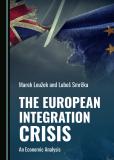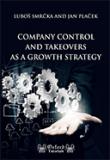#8250;


 #8250;
#8250;
#8250;
#8250;
#8250;
#8250;
#8250;
#8250;
Latest Publication

European integration is not a priori positive or negative: it results from the interaction between various interests. During the past few years, however, it has been impossible to ignore increasingly strident claims that the European Union is in the midst of a crisis. According to this perspective, European institutions do not function well, democracy in the Union is flawed, eurozone problems have reached a critical point, and inward migration, which European institutions seem incapable of handling, is escalating.
This book demonstrates that public choice theory can be a suitable analytical tool to examine the European integration process. It is based on the assumption that consumers, politicians and even nations are similarly concerned with their own interests (economic, political, and so on). Public choice theory enables us to ‘de-idealize’ the European integration process and see the interests of individual actors in the process more realistically. European integration does not occur because the actors are altruistic; rather, it comes about due to their rational pursuit of individual or group self-interests.
European integration and other forms of globalization are not irreversible. For every action, there is an equal and opposite reaction. It remains a possibility that, after several decades of European integration, we are now entering an era of disintegration. This book will serve as a source of edification for academics, politicians, students, and experts, as well as the general public. It is designed to capture the interest of both graduate and postgraduate students of economics, political science and international relations. show site

The crisis of 2008 to 2010 destroyed the dreams of many and came as a wake-up call to people not just in the U.K. This book, written by Czech author Luboš Smrčka, is a fascinating guide through the world that has lost the appearance we once knew and where millions of people have realized that being well-off one day is no guarantee of what tomorrow brings. Unlike many other authors, however, Smrčka is not a pessimistic prophet of collapsing economic order or societies. Instead, his book returns to the basics: simple down-to-earth economic rules that are applied to the world of families. The author does not preach undisputable truths but centres on the simple fact that there is no way of property multiplication other than moderation, care, common sense and caution. He does not attempt to explain the variety of investment instruments and product details. By using references to the history, literature, politics, social sciences as well as theology, he strives to convince the reader in a captivating way that the tradition of economic thought discovered by our ancestors is still very much alive and needed more than ever before. Smrčka is one of the kind who misses the times where the pound was gold, a trustworthy means of exchange with virtually no inflation. But, honestly, don’t we all miss it a little? show site

Most of the books concerning mergers and acquisitions of companies tackle the issue from the legal perspective. Of course, being rather complex, the topic requires the legal aspect to be analyzed in detail. There is also another side of the issue, which is tackled by the media and often becomes part of the news, and that is the return for the owner, in other words the effectiveness of M&A. But the motives behind M&A are explored only exceptionally. The present book is unique in combining all the three aspects. show site
mail me
smrckal@vse.cz
Copyright © 2025 Luboš Smrčka – all right reserved | Accessibility Statement | Terms of Use | Site map
Created and designed by Pixel Design | CMS Pixel Admin | SEO and marketing
Created and designed by Pixel Design | CMS Pixel Admin | SEO and marketing


